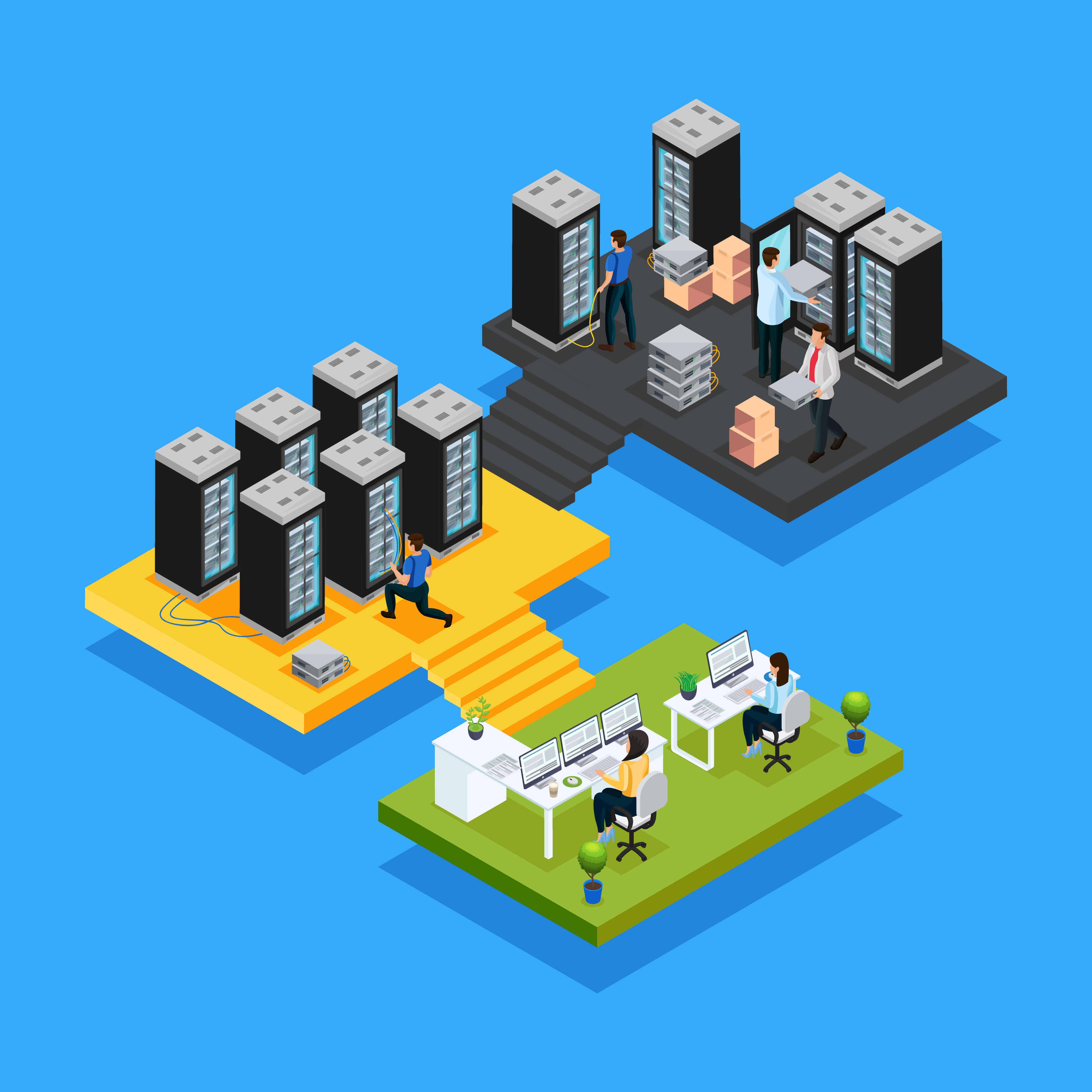Introduction
With the development of the Internet, cloud computing has gradually become the mainstream solution for enterprise informatization. As an important part of cloud computing, domain cloud servers have different advantages and disadvantages compared to traditional servers. This article will compare and analyze domain cloud servers and traditional servers from the aspects of performance, security, and cost, to help enterprises choose a server solution that is more suitable for them.

Performance
In terms of performance, traditional servers usually use single-machine deployment, and their performance is limited by hardware resources, making it difficult to achieve elastic scalability. On the other hand, domain cloud servers use distributed deployment, which allows for flexible adjustment of server scale according to actual needs, improving system scalability and elasticity. Additionally, domain cloud servers provide more convenient automated operation and maintenance tools, which can effectively reduce operation and maintenance costs and the occurrence rate of faults.
In traditional servers, the limitations of hardware resources inevitably affect their performance. Generally, traditional servers use single-machine deployment, lacking the ability of elastic scalability. As the business scale and traffic increase, the performance bottleneck of traditional servers becomes more and more apparent. In comparison, domain cloud servers use distributed deployment, which allows for flexible adjustment of server scale according to actual needs, improving system scalability and elasticity. Additionally, domain cloud servers provide more convenient automated operation and maintenance tools, which can effectively reduce operation and maintenance costs and the occurrence rate of faults. Therefore, in terms of performance, domain cloud servers have a greater advantage over traditional servers.
Security
In terms of security, domain cloud servers have better security performance. The security of traditional servers mainly relies on physical environment and network isolation, making them vulnerable to hacker attacks and virus intrusion. On the other hand, domain cloud servers use virtualization technology to achieve resource isolation and improve security. At the same time, domain cloud servers provide comprehensive security management and control, enabling more detailed permission control over user data and applications, ensuring data security and integrity.
In traditional servers, security has always been a major challenge. Because the security of traditional servers mainly relies on physical environment and network isolation, they are vulnerable to hacker attacks and virus intrusion. On the other hand, domain cloud servers use virtualization technology to achieve resource isolation and improve security. At the same time, domain cloud servers provide comprehensive security management and control, enabling more detailed permission control over user data and applications, ensuring data security and integrity. Therefore, in terms of security, domain cloud servers also have higher security performance compared to traditional servers.
Cost
In terms of cost, domain cloud servers have certain advantages over traditional servers. Traditional servers require enterprises to purchase and maintain hardware facilities, which requires a large investment of manpower and financial resources. On the other hand, domain cloud servers use a rental model, where enterprises only need to rent the corresponding resources according to their actual needs, which can effectively reduce the costs of hardware procurement and maintenance. Additionally, the automated operation and maintenance tools of domain cloud servers can improve operational efficiency and reduce operation and maintenance costs.
In traditional servers, the costs of hardware procurement and maintenance are significant expenses. Traditional servers require enterprises to purchase and maintain hardware facilities, which requires a large investment of manpower and financial resources. On the other hand, domain cloud servers use a rental model, where enterprises only need to rent the corresponding resources according to their actual needs, which can effectively reduce the costs of hardware procurement and maintenance. Additionally, the automated operation and maintenance tools of domain cloud servers can improve operational efficiency and reduce operation and maintenance costs. Therefore, in terms of cost, domain cloud servers have a greater advantage over traditional servers.
Conclusion
Overall, domain cloud servers and traditional servers have their own advantages and disadvantages. When choosing a server solution, enterprises should consider their actual needs and budget, and choose the most suitable solution for themselves. Domain cloud servers have better performance, security, and cost control capabilities compared to traditional servers, and are therefore becoming more and more popular among enterprises. I hope this article can provide some useful references for everyone. Thank you for reading!






















